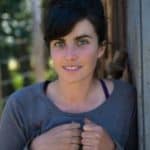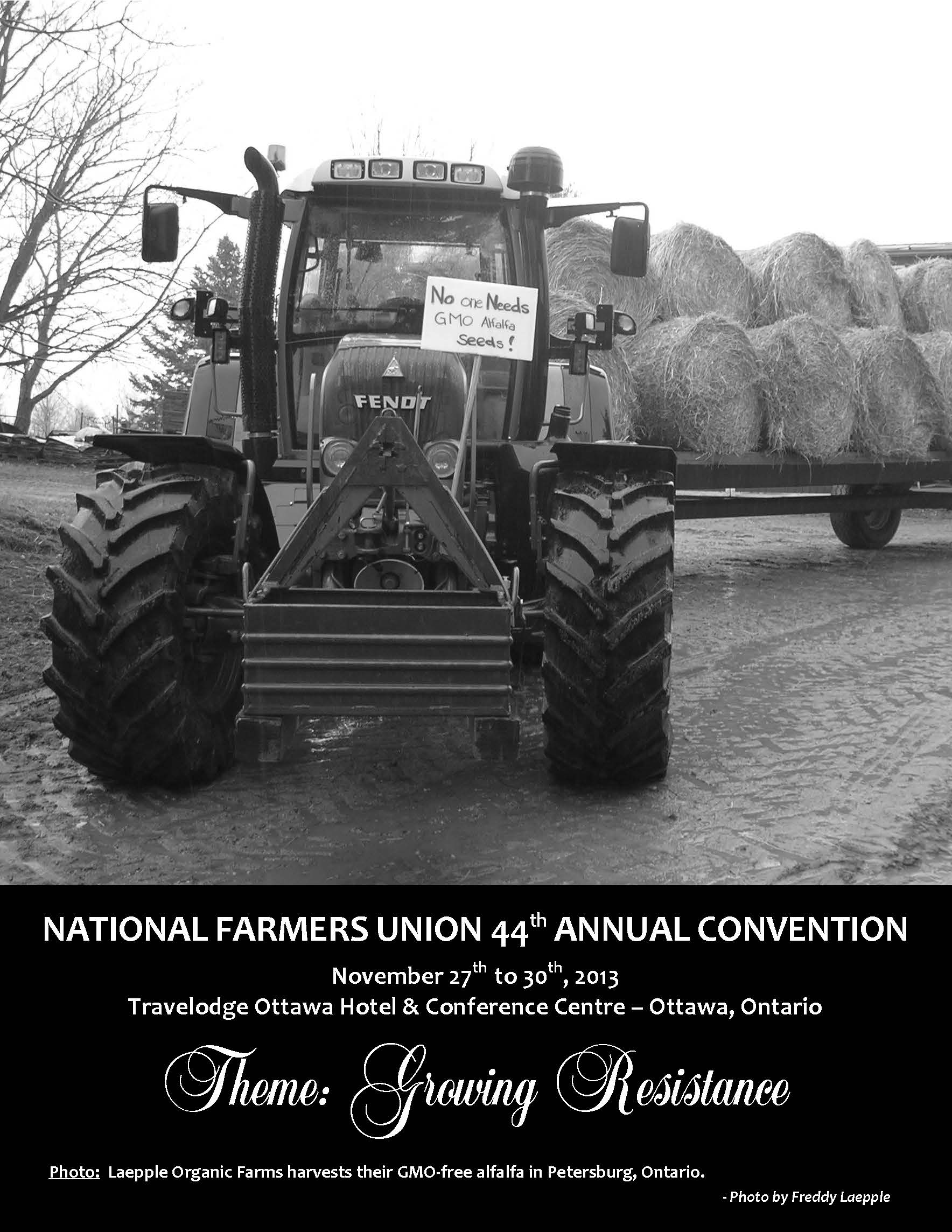
44th Convention (2013)
Growing Resistance
Ottawa, November 27-30, 2013
When citizens don’t know the terms of agreements being negotiated by their governments, but corporations do, the scene is set for ‘Growing Resistance.’ Every time a farmer plants a seed that is in the public domain, that farmer is ‘Growing Resistance.’ When a young farmer decides to enter into farming through an alternative form of land tenure, that farmer is ‘Growing Resistance.’ When citizens – farmers or not – who, in solidarity, object to and resist policies or initiatives that put corporations before people, they are ‘Growing Resistance.’
And resistance is growing – everywhere. Today’s political and economic reality is this: global corporations are exerting more than their share of influence in national and international spheres, and people have had enough.
In this Convention, we heard about and discussed how dissent and resistance foster ‘Growing Resistance’ through the lens of seeds: their symbolic and real economic value; their role in achieving food sovereignty; who can and can’t use them; who reaps the benefits, bears the risks and makes the decisions. We talked about how we grow resistance in small ways every day, and how together, we grow resistance against power structures that do not have our best interests in mind.
Our intention was that participants left Convention 2013 informed and energized, prepared to feed and water the ‘Growing Resistance’ already underway or just taking shape in their own communities.
Download the NFU 2013 Convention pamphlet (PDF)
Audio recordings of the Convention sessions are available on CD for $10 each.
Download and print the order form then mail to the address on the form with your payment.
Featured Speakers
Wednesday, November 27, 2013
WORKSHOP: Organizing Campaigns, Building a Movement
This workshop, led by Joan Kuyek, will offer ideas, tools and information along with lively discussion and sharing to help us create and advance effective campaigns to transform agriculture and food politics in Canada—and build the broad social movement for a better world. If you would like to understand and create better campaigns and help build the movement, this workshop is for you! Wednesday, November 27, 7:00 PM.
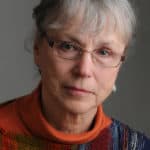
Joan Kuyek has been an activist organizer since the 1960s, based in Kingston and then in Sudbury. In 1999, she moved to Ottawa as the founding National Co-ordinator of MiningWatch Canada. Retired in 2009, she continues to work as a sessional instructor at Carleton, Queen’s and Algoma Universities, and on a contract/volunteer basis with communities facing mining issues. She is the author of Community Organizing: A Holistic Approach (2011), Fighting for Hope: Organizing to Realize our Dreams (1991) and a number of other books and articles.
Thursday, November 28, 2013
Resistance and Dissent in Healthy Society

Ann McGrath has been consistently identified as one of the 100 most influential people in government and politics in Ottawa. Knowledgeable about federal politics, trade unions, civil society and non‐profit organizations and the NDP, Anne was chief of staff to NDP leaders Jack Layton, Nycole Turmel, and Thomas Mulcair. She led a staff team of more than 700, provided critical strategic advice, and was part of the core team when the NDP gained official opposition status in 2011.
Dave Oswald Mitchell is a writer, editor, researcher and co‐editor of Beautiful Trouble: A Toolbox for Revolution. He edited the Canadian activist publication Briarpatch Magazine from 2005 to 2010, and his writing has been published in Rabble, Reality Sandwich, Rolling Thunder and Upping the Anti.


Sheelah McLean is currently a PhD candidate in integrated antiracist anticolonial education and is one of the co-founders and organizers of the Idle No More movement. A secondary, adult education and university teacher, she works to address inequality and the issues faced by marginalized groups, particularly focusing on the historical legacy of oppression experienced by Indigenous peoples within a white-settler society.
FREE PUBLIC EVENT – 7:00 PM
Our Communities. Our Country. Our World. Our Economy

A talk given by Jim Stanford, economist with Unifor, the newest, largest and most diverse union in Canada formed by the former Canadian Auto Workers and Commercial, Energy and Paperworkers in 2013. Jim is the author of Paper Boom and co‐editor of Challenging the Market: The Struggle to Regulate Work and Income. He is also a columnist for The Globe & Mail.

Friday, November 29
Rooted in Resistance: Food Sovereignty, Farmers & Farm Labour

Nettie Wiebe teaches ethics at St. Andrews College, University of Saskatchewan and farms near Delisle, Saskatchewan, growing organic grains and pulse crops as well as raising cattle. Nettie served in elected leadership positions of the National Farmers Union for ten years and was the first woman to lead a national farm organization in Canada. Dr. Wiebe is an active participant in public discourse on sustainable agriculture and rural communities, trade agreements, women’s equality, human rights, peace, economic and environmental issues and food sovereignty. Her recent publications include co-editing two volumes on food: Food Sovereignty: Reconnecting Food, Nature and Community (2010) and Food Sovereignty in Canada: Creating Just and Sustainable Food Systems (2011).
Karen Pedersen is a 5th generation honey producer from Cut Knife, Saskatchewan. She farms collectively on a small family farm with her extended family. In the past, she has hired several temporary foreign workers and has done two stints as an agricultural temporary foreign worker herself. She is past NFU Youth President and NFU Women’s President.
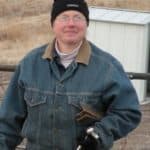
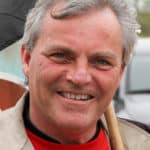
Stan Raper, the National Coordinator of the Agriculture Workers Alliance (AWA), has worked on behalf of both domestic and migrant agricultural workers in Canada for over two decades. In 2002, Stan coordinated the opening of the first UFCW Canada Migrant Workers Support Centre in Leamington, Ontario which has grown to ten AWA centres across Canada. In addition to coordinating the AWA, Stan has also been an active participant in a number of UFCW Canada legal challenges regarding the constitutional right of agricultural workers to unionize, the right of Ontario farm workers to be covered under OHSA, and the right of migrant workers to be treated equitably under the federal Employment Insurance (EI) system.
Our Seeds, Ourselves
The NFU Youth will lead this interactive session.
Seed Sovereignty: Building Strong Foundations

Jack Kloppenburg is a professor in the Dept. of Community and Environmental Sociology at the Univ. of Wisconsin‐Madison who explores ways for people to live and thrive sustainably. Jack envisions a foodshed” ‐ a sustainable food system demonstrating many of the principles that define food sovereignty, such as local/regional food production and strong community institutions. He is excited by the possibilities of food sovereignty and the application of ‘open source’ principles to the biosciences.
Terry Boehm has had a long involvement with the NFU, currently as President. He has been analyzing legislation, trade agreements, government papers and reports, academic journals and reports and corporate data as part of his work for the NFU. He has particular expertise in intellectual property issues as they relate to seed, seed legislation and variety registration systems in Canada.
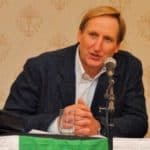
Saturday, November 30
Feeding the World: Countering the Corporate Spin

Brewster Kneen has lived a varied life, from pacifist agitator and leftist Christian radical to fifteen years as a sheep farmer and co-op-organizer. In the years since farming, he has been a roving organizer among farmers – including a few years trying to organize agricultural land trusts. Since the late 1980s, Brewster has written six books on agriculture and food, genetic engineering and corporate control, with the latest book being “The Tyranny of Rights”. He says “Food Sovereignty” should not mean corporate sovereignty over global food.
Camila Montecinos is an agronomist who has worked with small farmers for most of her professional life, especially through the Chilean organisation CET and a number of years with the global CBDC programme. Camila has been on staff at the international non-profit, GRAIN, since 2002. Camila’s responsibility is to support GRAIN’s partners in Latin America and to help implement the organization’s programme across the region. On GRAIN’s behalf, she is an advisor to the Biodiversity Commission of La Vía Campesina and she participates actively in producing Biodiversidad magazine.

Big Oil v. Food Sovereignty: Threats to Food, Land and Water

Doug Scott farms near the small town of Waskatenau, which means “where the waters meet” in Cree. It is located about 100 km north-east of Edmonton on the north side of the North Saskatchewan River. Doug’s great-grandfather homesteaded there in 1908, so the crop the Scott’s seeded this year was their 105th. They seed about 3000 acres each year, growing wheat, barley, canola, peas and oats. In 2007 the first major pipeline from Ft. McMurray crossed their land. Since then, three more have been built, with two more in the proposal stage. They now live in what is referred to locally as “pipeline alley”
Rick Munroe recently served as an Intervenor on behalf of NFUO in the recent National Energy Board hearings on Enbridge’s Line 9. His research priority includes energy security analysis, the interactions between fossil fuels and food and transmission pipelines and public safety. Rick and his wife farm on Howe Island, one of the picturesque “Thousand Islands” near Kingston, Ontario.


Eriel Tchekwie Deranger is a Dene Indigenous activist, member of the Athabasca Chipewyan First Nation (ACFN) in northern Alberta, and wife and mother to two. As the ACFN Tar Sands Campaign and Communication Coordinator she focuses on creating greater awareness about the negative climate, human and Indigenous rights impacts of the Alberta Tar Sands, demanding that all levels government and the private sector fully recognize and implement the unique Indigenous rights her people hold as described by Treaty 8 and the United Nation Declaration on the Rights of Indigenous Peoples. Eriel’s First Nation is suing Shell Canada for unmet Tar Sands Impact Benefit Agreements, as well as challenging Shell’s application for permits to expand and build new tar sands projects in Northern Alberta.
Farm Practice as Political Strategy

Paul Slomp pastures a small herd of Angus cattle and sells the meat to Ottawa households directly through the Community Shared Agriculture (CSA) model. Grazing Days farm is aimed at providing local grass-fed beef for urban households who don’t have storage space for or who don’t eat large quantities of beef. Paul is experimenting with interesting land tenure and farm financing models.
Randall Affleck lives with his wife, Jackie, with their two children Katie and Regan in Lower Bedeque, Prince Edward Island. Randall and his brother Alex are the 5th generation to operate the families 300-acre dairy farm. Randall graduated from the Nova Scotia Agricultural College with a diploma in Animal Science in 1987.

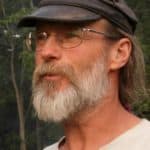
Lyle Orchard was raised on a family farm near Borden, SK. He and his brothers transitioned the farm to chemical-free production in 1975. He then became a renovation contractor with a focus on energy efficiency, recycling and fine woodwork. He returned to his roots in 2008 to farm 280 acres near Shell Lake, SK growing certified organic cereal crops.
Virginie Lavallée-Picard founded and manages Wind Whipped Farm, a small organic market garden and orchard in Metchosin on the southern end of Vancouver Island. She established and coordinates The Local Food Box program, a marketing partnership between Metchosin farmers, which offers a CSA-style box subscription. Virginie is also an MA candidate at Concordia University, researching the integration of food sovereignty considerations into community planning.
